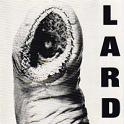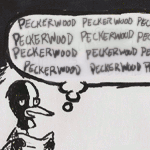|
PT6A posted:I want to make sure I understand you correctly: is it your claim that, given some ideal, perfect instruction, all students would be able to learn at the same rate as the most intelligent person in any given group of people?
|
|
|
|

|
| # ? May 3, 2024 14:50 |
|
twodot posted:How does someone read "most" and interpret that as any sort of claim about all? I don't even care who is right, this is absurd. Gifted education is hardly about "most," though. It's explicitly about fairly extreme outliers. The program I was in required results on a comprehensive and professionally-administered test of two standard deviations above the mean or higher; roughly, the top 5%. What applies to "most" kids is already completely irrelevant, because we're talking about approximately 1-2 kids per average class (this is why not every school has or should have a gifted program; it's simply not feasible). Do you think it's feasible, even with ideal instruction, to get even a majority of people performing at that level? I don't think it is, but if someone can find a way to do so, it would be an huge boon for society and humanity itself.
|
|
|
|
Higsian posted:In enforcing equality you'd push down on the higher performing students. I'd contest you are pushing down higher performing kids from advanced instruction. They are denied the ability to be challenged through institutional instruction, thus handicapping them to preserve equality. What advantages are preserved? Innate ability can only be utilized through challenging study. What structures do lower social economic students have to challenge themselves outside of institutional instruction? If there are ways, will they be able to parlay them the same way a resource rich kid would? (In my antidotal experiences, things like Math Olympiads, or science camps have skewed more towards higher social economic kids then innate ability while students in school supplied fast tracks had a wider range of social economic backgrounds) Side question: Would you be ok with a strictly curved grading system in common core curriculum?
|
|
|
|
Education isn't about equality, it's about equity. Meaning everybody gets what they need to allow them to grow as much as possible in the educational environment. For kids with severe disabilities, that might mean an alternate curriculum, smaller classes and additional supports like highly structured behavior management. Kids with less severe disabilities might get a range of services to allow them to succeed in a traditional classroom environment, like testing accommodations or additional adult support. For gifted kids it might look like enrichment activities or classes.
|
|
|
|
Miss-Bomarc posted:For purposes of equality-in-education discussions, Asians count as white people. Hmong, Cambodian, and Laotian Americans are among the poorest, least educated groups in the country, so maybe that's not a great idea.
|
|
|
|
JeffersonClay posted:Education isn't about equality, it's about equity. Meaning everybody gets what they need to allow them to grow as much as possible in the educational environment. For kids with severe disabilities, that might mean an alternate curriculum, smaller classes and additional supports like highly structured behavior management. Kids with less severe disabilities might get a range of services to allow them to succeed in a traditional classroom environment, like testing accommodations or additional adult support. For gifted kids it might look like enrichment activities or classes. Very nicely put!
|
|
|
|
Junkyard Poodle posted:I'd contest you are pushing down higher performing kids from advanced instruction. They are denied the ability to be challenged through institutional instruction, thus handicapping them to preserve equality. You mean curving on a school basis? I'm not morally opposed to it, though I'd want to see some analysis and experimentation before I'd be cool with it being implemented. Institutional instruction is not good for gifted students. It's great for kids whose entire advantage comes from who their parents are and how much they care about their education, who can then compound and ride that advantage into university. But gifted students should be teaching themselves higher/lateral concepts. Not just because it would be cheaper, but because the ability to self-teach is incredibly important. The ability to teach yourself competes with the ability to communicate and the ability to work well in a team as the most important talent a knowledge worker can possess. At my old university professors say that students who were not taught programming in school catch up to those who did within a single semester. The kids that start and say ahead are the independently motivated ones. There's actually a lot of concern in the software industry about the quality of graduates because a lot of them just have nothing to offer outside of being students. Giving gifted students more of the same doesn't seem like it's useful beyond maybe getting them into university. PT6A you seem more concerned with counselling and supporting students at risk than in a specifically gifted program. I mean if schools used things like a gifted test to identify students under performing and used that to modify how they taught them, wouldn't that be exactly what you want? Futuresight fucked around with this message at 23:26 on Sep 20, 2015 |
|
|
|
Higsian posted:You mean curving on a school basis? I'm not morally opposed to it, though I'd want to see some analysis and experimentation before I'd be cool with it being implemented. Yes. At-risk students should be identified and provided appropriate educational programming regardless of why they might be at-risk or need counselling. I'm merely saying that being gifted should not itself be used as a reason to deny this support. I agree very strongly with your point about self-teaching: it's an unbelievably important skill. Still, this should be part of a gifted program. Leaving gifted students to gently caress around on Wikipedia is not the same as insisting that they go above and beyond, in a structured but still self-taught fashion, and evaluating the results. One of the criteria of courses in the gifted program I was a part of was that students were required to do exactly that. In most courses, we would be required to propose a topic for further study, within certain constraints (that it had to be related to the existing curriculum), and then we would be evaluated on the results. In that sense, we had impressive leeway, but it was by no means optional. I think I learned a lot from those projects. On the other hand, simply covering more material at the same level of detail would have been minimally beneficial. There's a right way and a wrong way to administer these gifted programs, and it's clear that many programs are very committed to going with the wrong way (which is ultimately easier on instructors). It is crucial that existing bad programs be reformed, as well as ensuring that gifted education continues to be supported.
|
|
|
|
The thing that "gifted" students most need to learn is not compatible with pedagogy as it is traditionally practiced, and there are some major, major ethical issues with implementing it institutionally. But for a lot of people, this is a cultural issue rather than a policy issue, so the limitations of education don't matter.
|
|
|
|
|
Effectronica posted:The thing that "gifted" students most need to learn is not compatible with pedagogy as it is traditionally practiced, and there are some major, major ethical issues with implementing it institutionally. But for a lot of people, this is a cultural issue rather than a policy issue, so the limitations of education don't matter. And what is it that you think gifted students most need to learn? It's difficult to respond to your post unless you tell us, as I am unable to read your mind, and I assume others are as well.
|
|
|
|
PT6A posted:I agree very strongly with your point about self-teaching One needs to be careful with this; intelligence or ability isn't the same thing as knowledge. A gifted student can't know what they don't know. It's very easy for students to self-learn terrible habits, or miss out on critical fundamentals, or allocate their time poorly etc etc. So any "self-learning" should still have a fairly substantial amount of supervision.
|
|
|
|
Shakugan posted:One needs to be careful with this; intelligence or ability isn't the same thing as knowledge. A gifted student can't know what they don't know. It's very easy for students to self-learn terrible habits, or miss out on critical fundamentals, or allocate their time poorly etc etc. Absolutely. The support must be there, and that's exactly what a gifted program should provide. This is also why treating gifted students as being uniformly high-achieving is a bad thing. Also, you absolutely must have teachers that understand the role of gifted education and the needs of gifted students; using teachers that are used to teaching AP and honors programs can be incredibly counter-productive.
|
|
|
|
What you get when you throw the same book at everyone and treat their learning skills as equal is a society with extremely stilted growth in a sense that the intelligentsia will be exclusive to the upper classes who can afford access to better curriculum for their students through private schools and elite universities. Stanford, for example, is already is notorious for its selection process- even with its more recent policies such as the tuition waiver for low income students.
|
|
|
|
PT6A posted:I want to make sure I understand you correctly: is it your claim that, given some ideal, perfect instruction, all students would be able to learn at the same rate as the most intelligent person in any given group of people? That seems like nonsense. That's like saying, given enough time, I could train myself to be a competitive sprinter. I can certainly improve, but I'm always going to be poo poo because, guess what, that's how I was born. Yeah, it loving sucks that people don't all have the same natural abilities; having been born with cerebral palsy, I know that really, really well. That doesn't mean we can change that basic fact by trying extremely hard to ignore it. I don't know why you're still having trouble with this since I've described it to you specifically at least three times, but sure, I'll explain it again to you. Only a quickie this time, though. It is my claim that while overall differences in "learning capability" most likely do exist, those differences are dwarfed by the effects of the differences in kids' learning styles. Gifted kids are not gifted because they are just better at all learning, they're gifted because they are better at handling the particular very limited way that classes are taught today. The difference between gifted and non-gifted is not "smart vs dumb" or "high brain potential vs low brain potential", it's "people whose brains are adapted to rote memorization (even though they're still bored by it because surprise, everyone thought school was boring, not just the gifted kids) versus people whose brains are better at other styles of learning that are rarely, if ever, seen in American schools". Failure to learn is, generally speaking, caused by the failure of the school system to teach properly (or due by out-of-school issues that interfere with the kids' schooling), not because the kids are stupid. With an actually functional education system, a curriculum that focuses on building strong foundations for later learning rather than cramming inappropriately-ordered knowledge that won't last the summer, and teaching tactics that involve students far more and cover a wide variety of learning styles, everyone will learn a lot more, and the gaps in performance and perceived potential will be much, much smaller. Gifted programs are a symptom of just how bad the current system is at teaching. Frankly, it's kind of disgusting to see that, despite the fact that everyone claims to acknowledge that the system sucks now, everyone is assuming that the way it's done now is the best way to do it. Why is everyone ascribing negative motives to the school administrators? They're trying to fix a class that's completely broken and horribly unsuited, and instead of admitting the possibility that maybe there was some problem with a class that most kids were failing, people are accusing the mean old teachers of trying to drag down smart kids out of spite or something.
|
|
|
|
Main Paineframe posted:I don't know why you're still having trouble with this since I've described it to you specifically at least three times, but sure, I'll explain it again to you. Only a quickie this time, though. I agree that there's a big problem with the way the system currently works, regarding methods of instruction being particularly unsuited to a large number of learners. That's not something I've argued with. I think those improvements absolutely need to be made, and it would help a lot of students learn a lot more. It's very obvious that the levels of under-performance currently seen in most, if not all, school districts cannot be explained away as "the kids are stupid." I agree 100% with this. As I've pointed out several times, one group that is being failed is gifted children who are underperforming in standard classes, but we can ignore that at this point as it's not particularly germane to the point I'm trying to make right now. Let's presume we fix this problem, and instructional methods are changed to eliminate the problems you mention with regard to instructional style (something I think very much should happen) and everyone's suddenly performing up to 100% of their natural ability. I'm not sure exactly how this should be accomplished, but again that's not important to the point I'm trying to make. You're still going to have the top 5% of students, and the bottom 5% of students, and they're still going to benefit (and they deserve to have) some form of alternative educational programming that addresses their specific needs. What do you do then? I think that gifted education can and should be a part of the wide-reaching educational reforms you're proposing, and I see no reason why it can't be. Why do you think that gifted education is incompatible with the changes you would like to see in the educational system?
|
|
|
|
Obdicut posted:I went to a small, rather than a bad, school. And no, it's not going to make it impossible to get into STEM programs. You can still take calculus, and you can get into STEM programs having never taken calculus. It makes it a metric fuckton more difficult and irritating though. Calc I and/or II at most universities are notorious weed-out, GPA-crushing, time-sink classes for science and engineering majors. Those classes, along with General Chemistry and Intro Physics are easily responsible for a significant portion of the "shortage" of STEM majors. If we want more students going into scientific fields, then we absolutely want more of them to avoid those classes with AP credits.
|
|
|
|
Miss-Bomarc posted:The assumption is that there's no such thing as "kids who learn faster"; there are only children of rich white parents who've been given the effective teaching that racist, money-worshipping American society denies to not-rich not-white children. I really doubt rich kids will be affected by any of this though, because they can afford the choice of private schools. I think you missed the target or something. Job Truniht posted:What you get when you throw the same book at everyone and treat their learning skills as equal is a society with extremely stilted growth in a sense that the intelligentsia will be exclusive to the upper classes who can afford access to better curriculum for their students through private schools and elite universities. Stanford, for example, is already is notorious for its selection process- even with its more recent policies such as the tuition waiver for low income students. wiregrind fucked around with this message at 16:28 on Sep 22, 2015 |
|
|
|
ChipNDip posted:It makes it a metric fuckton more difficult and irritating though. Calc I and/or II at most universities are notorious weed-out, GPA-crushing, time-sink classes for science and engineering majors. Those classes, along with General Chemistry and Intro Physics are easily responsible for a significant portion of the "shortage" of STEM majors. If we want more students going into scientific fields, then we absolutely want more of them to avoid those classes with AP credits. Or you could alter the curriculum at the university, but hey.
|
|
|
|
ChipNDip posted:It makes it a metric fuckton more difficult and irritating though. Calc I and/or II at most universities are notorious weed-out, GPA-crushing, time-sink classes for science and engineering majors. Those classes, along with General Chemistry and Intro Physics are easily responsible for a significant portion of the "shortage" of STEM majors. If we want more students going into scientific fields, then we absolutely want more of them to avoid those classes with AP credits.
|
|
|
|
twodot posted:This sounds opposite to me. I would understand an argument in reducing the difficulty of any random freshmen class, but stating that a freshmen class is too difficult, and therefore we should make everyone get AP credits is really bizarre to me. If the college course is so much more difficult, it seems like that would be for a reason. The usual reason it's difficult is because the classes are excessively large and the lecturers are inexperienced and/or literal grad students. The material is more or less identical because that's how you get the credit in the first place.
|
|
|
|
computer parts posted:The usual reason it's difficult is because the classes are excessively large and the lecturers are inexperienced and/or literal grad students. The material is more or less identical because that's how you get the credit in the first place.
|
|
|
|
computer parts posted:The usual reason it's difficult is because the classes are excessively large and the lecturers are inexperienced and/or literal grad students. The material is more or less identical because that's how you get the credit in the first place. I don't know, in my experience, the AP exam is much easier than the college class. I got a 5 on the AP Calc test, and was recommended by my advisor to retake the class in college, and I learned a lot when retaking the college class. You can get a 5 on the AP Calc test without having any sort of intuition about calculus, and only having memorized the derivative and anti-derivative formulas.
|
|
|
|
silence_kit posted:I don't know, in my experience, the AP exam is much easier than the college class. I got a 5 on the AP Calc test, and was recommended by my advisor to retake the class in college, and I learned a lot when retaking the college class. You can get a 5 on the AP Calc test without having any sort of intuition about calculus, and only having memorized the derivative and anti-derivative formulas. I took calculus in high school, but not as part of AP as it wasn't offered at my high school, and I would agree with this entirely. The coverage of the same material at the university level was sufficiently more in-depth that I couldn't, for example, simply skip class and expect to still do well. Trying to replace university-level courses with high school approximations seems like a very counter-productive idea, although I understand why it's so popular with tuitions being right out of control in the US.
|
|
|
|
PT6A posted:I took calculus in high school, but not as part of AP as it wasn't offered at my high school, and I would agree with this entirely. The coverage of the same material at the university level was sufficiently more in-depth that I couldn't, for example, simply skip class and expect to still do well. Trying to replace university-level courses with high school approximations seems like a very counter-productive idea, although I understand why it's so popular with tuitions being right out of control in the US. The continuum of difficulty is something like: non-AP calculus class << community college calculus class < AP calculus = calculus class at low-quality public school < non-science/engineering calculus class at flagship public school or private school < science/engineering class at flagship public school or private school < honors calculus class at flagship public school or private school. In particular non-AP/IB calculus courses in Canada tend to be very low level.
|
|
|
|
blah_blah posted:The continuum of difficulty is something like: Makes sense. All I know is that there's no way I would've been able to handle the material in my later courses that actually required calculus, without the extra stuff I learned in university, and CompSci is not particularly calculus-heavy compared to some other majors.
|
|
|
|
silence_kit posted:I don't know, in my experience, the AP exam is much easier than the college class. I got a 5 on the AP Calc test, and was recommended by my advisor to retake the class in college, and I learned a lot when retaking the college class. You can get a 5 on the AP Calc test without having any sort of intuition about calculus, and only having memorized the derivative and anti-derivative formulas. This is definitely not true unless you only did the AB exam, in which case no poo poo that a year long class that only gives you a semester class's credit is easier.
|
|
|
|
computer parts posted:This is definitely not true unless you only did the AB exam, in which case no poo poo that a year long class that only gives you a semester class's credit is easier. What I am saying is that AP Calculus isn't a good replacement for university calculus. I disagree with you when you say that the material is identical. You can get top scores on the test without really having a good understanding of calculus and only knowing how to memorize formulas, while to do well in the university class, you need to actually have a good intuition for calculus. I know that certainly was the case for me when I took both.
|
|
|
|
You can mostly divide intro calculus classes into the kind you can wolfram your way through and the kind you can't.
|
|
|
|
i did calculus before poo poo like wolfram was available loving millennials don't understand a drat thing they should go crawl back up into a boomer's poison womb
|
|
|
|
silence_kit posted:What I am saying is that AP Calculus isn't a good replacement for university calculus. I disagree with you when you say that the material is identical. And I'm saying that wasn't my experience. My university has a bit of segmentation for calculus though where some classes are more in depth in certain areas (mostly proofs) for the STEM majors that require it (like Math or Physics).
|
|
|
PT6A posted:And what is it that you think gifted students most need to learn? It's difficult to respond to your post unless you tell us, as I am unable to read your mind, and I assume others are as well. They need to learn how to deal with failure, without being able to shrug it off as them "not being good at something". Since a large part of teaching is about establishing trust between teacher and student, it's hard to see how this can be ethically systematized, no matter the practical issues with doing it. ChipNDip posted:It makes it a metric fuckton more difficult and irritating though. Calc I and/or II at most universities are notorious weed-out, GPA-crushing, time-sink classes for science and engineering majors. Those classes, along with General Chemistry and Intro Physics are easily responsible for a significant portion of the "shortage" of STEM majors. If we want more students going into scientific fields, then we absolutely want more of them to avoid those classes with AP credits. Why not address why these courses are developed in such a way? If it's nonessential to understanding the material (such that AP credits can substitute meaningfully instead of moving the weed-out courses to Calc III, Gen Chem II, or Physics II), then it's solely a waste of everyone's time and they could be improved for everyone's benefit. If it's a necessary consequence of understanding the material, then people who get AP credits are arguably underserved and will show weaknesses later in their curriculum. The only way this makes sense is if we assume university curricula are immutable but secondary ones aren't, which requires some major justification.
|
|
|
|
|
Effectronica posted:They need to learn how to deal with failure, without being able to shrug it off as them "not being good at something". Since a large part of teaching is about establishing trust between teacher and student, it's hard to see how this can be ethically systematized, no matter the practical issues with doing it. Okay, I completely agree with this. This is exactly why I think gifted children need to be pushed to their limits, and, in some cases, beyond them. I don't think everything needs to be completely systematic in education, I think it's up to the teachers to do their job properly and figure out how to push the child in question toward, but also through, struggles. Standardized systems, even ones like IB and AP, are not particularly effective in that, and I think it can done with equal effectiveness with a lesser degree of curriculum differentiation. Out of curiosity, what do you feel the ethical issues are with such a system?
|
|
|
PT6A posted:Okay, I completely agree with this. This is exactly why I think gifted children need to be pushed to their limits, and, in some cases, beyond them. I don't think everything needs to be completely systematic in education, I think it's up to the teachers to do their job properly and figure out how to push the child in question toward, but also through, struggles. Standardized systems, even ones like IB and AP, are not particularly effective in that, and I think it can done with equal effectiveness with a lesser degree of curriculum differentiation. It breaches trust between teacher and student, not to mention the more general ethical ambiguity of tailoring it to involve the kid's self-image so that they can't shake it off as just being something they don't like. Granted, it's towards a good end, but I sure as hell wouldn't want to do that to a kid.
|
|
|
|
|
Effectronica posted:It breaches trust between teacher and student, not to mention the more general ethical ambiguity of tailoring it to involve the kid's self-image so that they can't shake it off as just being something they don't like. Granted, it's towards a good end, but I sure as hell wouldn't want to do that to a kid. How does it breach trust between teacher and student (unless you're talking about arbitrarily telling a student they've failed when they haven't, or setting them an impossible task)? Some of my best learning experiences were basically getting my rear end handed to me, in subjects I liked and was decent in, by other people; some were my age, some were older. The teachers that really pushed me were the ones I respected. Kids, even gifted ones, are still only kids; they can be pushed to the edge of their intellect fairly easily, and it's not wrong to do so.
|
|
|
|
ChipNDip posted:It makes it a metric fuckton more difficult and irritating though. Calc I and/or II at most universities are notorious weed-out, GPA-crushing, time-sink classes for science and engineering majors. Those classes, along with General Chemistry and Intro Physics are easily responsible for a significant portion of the "shortage" of STEM majors. If we want more students going into scientific fields, then we absolutely want more of them to avoid those classes with AP credits. Hmm, yeah, we want more people in STEM fields who can't pass Calc I or general Chemistry.
|
|
|
|
JeffersonClay posted:Education isn't about equality, it's about equity. Meaning everybody gets what they need to allow them to grow as much as possible in the educational environment. For kids with severe disabilities, that might mean an alternate curriculum, smaller classes and additional supports like highly structured behavior management. Kids with less severe disabilities might get a range of services to allow them to succeed in a traditional classroom environment, like testing accommodations or additional adult support. For gifted kids it might look like enrichment activities or classes. not sure gifted students have laws like IDEA mandating certain standards. I've certainly never heard of an IEP for a "gifted" student
|
|
|
|
A big flaming stink posted:not sure gifted students have laws like IDEA mandating certain standards. I've certainly never heard of an IEP for a "gifted" student I'm not sure about whether it's mandated as such, least of all in the US, but all the students in my gifted program had an IEP. Why wouldn't they? I'm starting to think that 99% of the opposition to gifted programs is stemming from the fact that 99% of them appear to be pure, unadulterated poo poo.
|
|
|
|
PT6A posted:I'm not sure about whether it's mandated as such, least of all in the US, but all the students in my gifted program had an IEP. Why wouldn't they? oh cool, where do you teach again? i'm still in school for teaching, but it does seem like IEP is gonna be a huge focus for us even if we don't concentrate as special educators
|
|
|
|
Squinty posted:Hmong, Cambodian, and Laotian Americans are among the poorest, least educated groups in the country, so maybe [considering them to be white is] not a great idea. I don't do this, but college admissions boards certainly do. And, as has been pointed out, when someone says "we need more minorities in higher-level math classes", they do not have Southeast Asians in mind. wiregrind posted:by your assumption only Whites or Asians (North Eastern? South Eastern?) can learn faster or have supporting parents quote:I really doubt rich kids will be affected by any of this though, because they can afford the choice of private schools.
|
|
|
|

|
| # ? May 3, 2024 14:50 |
|
.
|
|
|


















